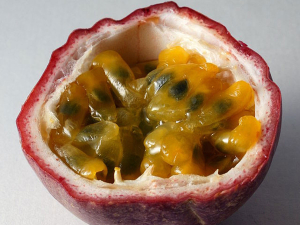Science system shakeup ‘to maximise investment value’
Reaction to the Government’s major overhaul of the country’s seven crown research organisations has so far been largely positive.
 Plant & Food Research will deliver the VietFruit project, drawing on its track record of problem-solving and achieving impact through the application of scientific knowledge in conjunction with Vietnamese partners.
Plant & Food Research will deliver the VietFruit project, drawing on its track record of problem-solving and achieving impact through the application of scientific knowledge in conjunction with Vietnamese partners.
A five-year New Zealand government-funded project to help Viet Nam build a more lucrative passionfruit industry was formally launched by the Prime Ministers of Viet Nam and New Zealand this week.
Prime Minister Christopher Luxon announced the NZ$6.24m investment in Viet Nam’s horticulture sector, called the ‘Viet Nam Climate-Smart Fruit Value Chain project’, known as VietFruit.
The project is part of New Zealand’s international development cooperation framework with Viet Nam.
It aims to support the Southeast Asian country’s agricultural sector, build its resilience to climate change and disasters, and help it develop a highly skilled and educated workforce.
As a member, along with New Zealand, of the Comprehensive and Progressive Agreement fro Trans-Pacific Partnership (CPTPP) free trade agreement, Viet Nam is becoming increasingly important as a trade partner. For instance, in the year ending June 2023, Viet Nam was the second leading export destination for New Zealand apples, after China.
Plant & Food Research will deliver the VietFruit project, drawing on its track record of problem-solving and achieving impact through the application of scientific knowledge in conjunction with Vietnamese partners.
“We have deep partnerships with organisations in Viet Nam and have created real value,” says Dr Suzie Newman, head of international development at Plant & Food Research.
“We have worked with smallholder farmers, agronomists, scientists, food companies, exporters and officials at Vietnamese Government Ministries like Agriculture & Rural Development (MARD) and Science & Technology,” she says.
The VietFruit project has Plant & Food Research working with two Vietnamese institutes: the Southern Horticulture Research Institute (SOFRI) and the Northern Mountainous Agriculture and Forestry Science Institute (NOMASFI). Vietnamese firm Nafoods Group is also a commercial partner.
This project aims to deliver three key outcomes:
Project scoping followed by early implementation began last year. To date the project’s scientists have assessed disease and climate change impact challenges, begun field trials and conducted initial postharvest loss assessments along the value chain.
“The benefits of success will include increased incomes for smallholder farmers, distributors and exporters, improved fruit quality and more efficient growing and postharvest practices,” says Newman. “Overall, the project will achieve a real lift in environmental and economic sustainability for Viet Nam’s passionfruit sector. It’s a high-value export and a valuable addition to the economy of Viet Nam.”
Plant & Food Research has a growing track record of delivering impact through international development projects stretching from India to South-East Asia, Africa, the Pacific and the Caribbean.
Funding is predominantly from New Zealand’s Ministry of Foreign Affairs and Trade, supplemented by contracts with agencies including the World Bank and the Australian Centre for International Agricultural Research (ACIAR).
With close to 1000 people across New Zealand and the world, and an international network of scientific collaborators, Plant & Food Research pulls together teams with the right expertise for every project, working with in-country experts to ensure solutions are fit for purpose.
Global trade has been thrown into another bout of uncertainty following the overnight ruling by US Supreme Court, striking down President Donald Trump's decision to impose additional tariffs on trading partners.
Controls on the movement of fruit and vegetables in the Auckland suburb of Mt Roskill have been lifted.
Fonterra farmer shareholders and unit holders are in line for another payment in April.
Farmers are being encouraged to take a closer look at the refrigerants running inside their on-farm systems, as international and domestic pressure continues to build on high global warming potential (GWP) 400-series refrigerants.
As expected, Fonterra has lifted its 2025-26 forecast farmgate milk price mid-point to $9.50/kgMS.
Bovonic says a return on investment study has found its automated mastitis detection technology, QuadSense, is delivering financial, labour, and animal-health benefits on New Zealand dairy farms worth an estimated $29,547 per season.

OPINION: Here w go: the election date is set for November 7 and the politicians are out of the gate…
OPINION: ECan data was released a few days ago showing Canterbury farmers have made “giant strides on environmental performance”.